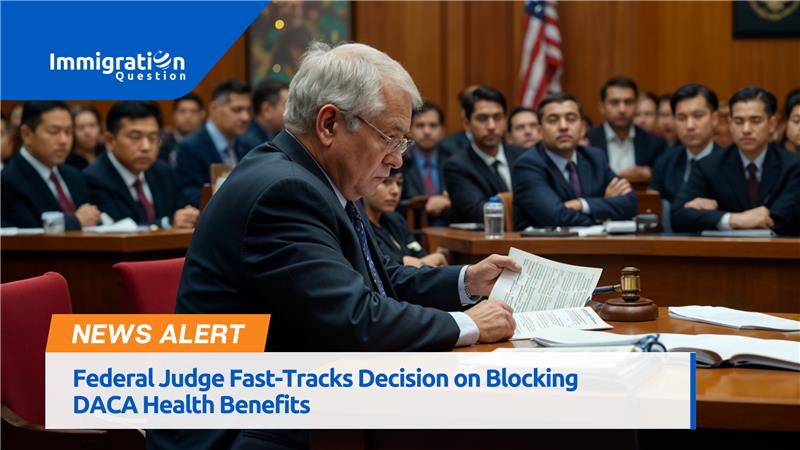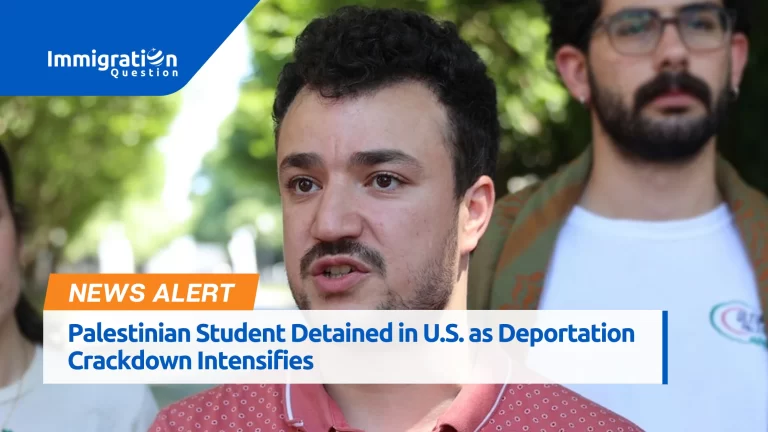Federal Judge Fast-Tracks Decision on Blocking DACA Health Benefits
A North Dakota federal judge has agreed to fast-track the U.S. Department of Justice’s (DOJ) appeal against an order halting a regulation that extends health coverage to Deferred Action for Childhood Arrivals (DACA) recipients. This decision, issued by U.S. District Judge Daniel M. Traynor, marks the latest development in a contentious legal battle over immigration policy and healthcare access.
The Disputed Rule and Its Impact
At the heart of the case is a Biden administration rule, finalized in May and effective as of November 1, which redefines “lawfully present” under the Affordable Care Act (ACA). This adjustment extends eligibility for ACA health plans to DACA recipients – immigrants brought to the U.S. as children with temporary work permits and protection from deportation under the Obama-era program.
The rule was anticipated to benefit approximately 100,000 DACA recipients, providing them access to ACA plans for the first time. However, the policy faced immediate backlash from a coalition of 19 Republican-led states, spearheaded by Kansas, which argued that the definition of “lawfully present” is strictly a matter for Congress, not executive agencies. The states contend that DACA recipients, by definition, lack lawful presence and, therefore, should remain ineligible for public healthcare benefits.
Preliminary Injunction and Legal Reasoning
Judge Traynor issued a preliminary injunction earlier this week, blocking the rule’s implementation across the 19 states involved in the lawsuit. His ruling stated that the Centers for Medicare & Medicaid Services (CMS) overstepped its legal authority by unilaterally redefining eligibility for healthcare programs. The judge highlighted that Congress, not federal agencies, holds the constitutional power to determine such definitions.
In their complaint, the states argued that the CMS rule disregards legislative intent and sets a precedent for federal overreach. “DACA recipients are, by definition, unlawfully present in the United States,” the states asserted in court filings, emphasizing that such a redefinition could lead to broader implications for immigration and public welfare policies.
DOJ Pushback and Emergency Motion
In response, the DOJ filed an emergency motion warning of severe consequences from the injunction. With open enrollment for ACA plans already underway, the DOJ estimated that approximately 2,700 enrollments would need to be canceled. The federal agency also pointed to the significant costs and logistical challenges involved in reversing system changes on an emergency basis.
Moreover, the DOJ argued that the states, particularly North Dakota, failed to demonstrate direct harm caused by the new rule. Without such injury, the government contends, the states lack legal standing to bring the case forward, rendering the lawsuit invalid.
Judge Traynor granted the DOJ’s request to expedite its appeal to the Eighth Circuit but did not explain his decision.
The State’s Rebuttal | Blocking DACA Health Benefits
In a filing submitted Thursday, the coalition of states countered the DOJ’s motion, accusing the government of attempting to reargue points that had already been dismissed. The states argued that the DOJ waived its right to present new arguments about the preliminary injunction’s impact by failing to raise them earlier in the case.
The states maintain that the CMS rule is a clear overreach and that the injunction is necessary to preserve Congress’ legislative intent regarding healthcare eligibility. They also expressed skepticism about the DOJ’s claim of impending harm, suggesting that the federal government’s emergency motion was an effort to bypass proper legal scrutiny.
Broader Implications for Blocking DACA Health Benefits Recipients
The Biden administration’s rule aimed to address a long-standing inequity faced by DACA recipients, who, despite living and working in the U.S., have been excluded from ACA coverage since the program’s inception in 2012. The ACA’s exclusion of DACA beneficiaries was based on an earlier CMS definition of “lawfully present” that specifically omitted them.
For immigrant rights advocates, the new rule represents a critical step toward equitable access to healthcare. However, opponents view the policy as an overreach that undermines the separation of powers and expands executive authority beyond its intended scope.
Looking Ahead – Federal Judge Fast-Tracks Decision on Blocking DACA Health Benefits
Both sides prepare for a potentially lengthy litigation process as the legal battle moves to the Eighth Circuit Court of Appeals. The case has significant implications for DACA recipients and the broader debate over the limits of executive authority in immigration policy.
Legal analysts predict that the outcome of the appeal could shape future interpretations of “lawfully present” status and influence ongoing discussions about healthcare access and immigration reform. Meanwhile, with ACA enrolment underway, affected individuals face uncertainty regarding their healthcare options.
To stay updated and informed, watch our news section or drop your immigration queries on immigration question and get responses from professional attorneys.










